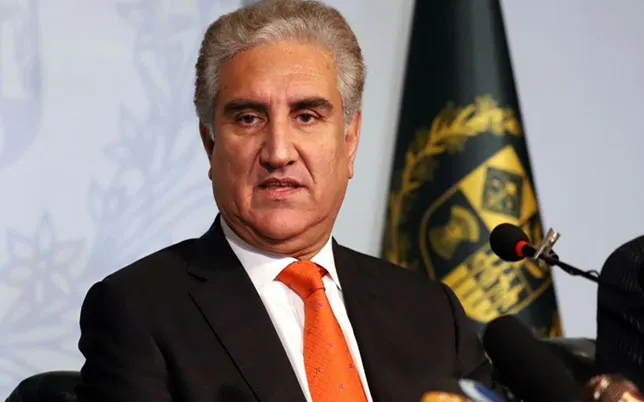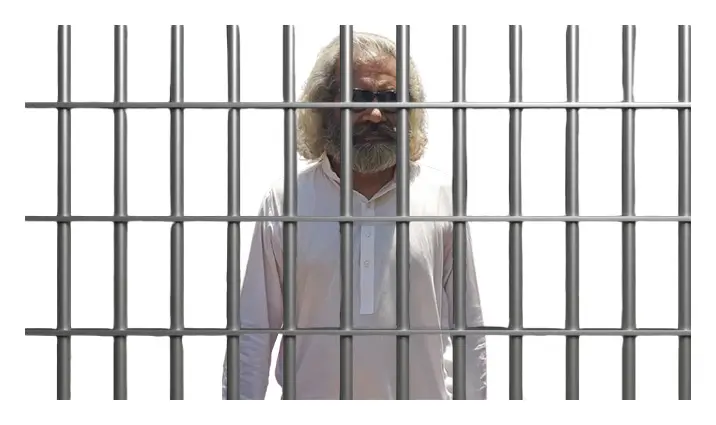Shah Mehmood Qureshi, a seasoned politician and vice chairman of Pakistan Tehreek-e-Insaf (PTI), has been a prominent figure in Pakistani politics for decades. Known for his diplomatic expertise and unwavering loyalty to PTI’s founder, Imran Khan, Qureshi’s career is marked by significant achievements, controversies, and recent legal challenges. This blog post explores his journey, from his early political career to his current role as a key PTI leader amidst ongoing political turmoil.
Early Life and Political Beginnings
Born on June 22, 1956, in Multan, Punjab, Shah Mehmood Qureshi hails from a politically influential family with deep ties to the region’s landed gentry. Educated at Aitchison College, Lahore, and later at the University of Cambridge, where he earned a degree in law and history, Qureshi’s academic background laid a strong foundation for his diplomatic and political career. He began his political journey in the 1980s with the Pakistan Muslim League (PML), serving as a member of the Punjab Provincial Assembly and later the National Assembly.
Qureshi’s early career saw him rise through the ranks of PML, holding various provincial ministerial positions. His shift to the Pakistan Peoples Party (PPP) in the 1990s marked a significant turning point, culminating in his appointment as Pakistan’s Foreign Minister from 2008 to 2011 under the PPP-led government. During this tenure, he gained international recognition for his handling of Pakistan’s foreign policy, particularly during tense moments in Pakistan-U.S. relations following the 2011 Osama bin Laden raid.
Joining PTI and Rise to Prominence
In 2011, Qureshi joined Pakistan Tehreek-e-Insaf, citing ideological alignment with Imran Khan’s vision for a corruption-free Pakistan. His defection from PPP was a major coup for PTI, given his stature and experience. As PTI’s vice chairman, Qureshi became one of the party’s most visible faces, representing it in both domestic and international forums. When PTI came to power in 2018, Qureshi was appointed Foreign Minister again, serving until the government’s ouster in April 2022. His tenure was noted for his efforts to strengthen Pakistan’s ties with regional powers and navigate complex global issues, including the Afghan peace process.
Controversies and Legal Challenges
Qureshi’s political journey has not been without controversy. His prominent role in PTI has made him a target in Pakistan’s polarized political landscape. Following the May 9, 2023, riots—sparked by Imran Khan’s arrest in a corruption case—Qureshi faced multiple legal battles. He was implicated in the violence near Jinnah House and the attack on the General Headquarters (GHQ) in Rawalpindi. An Anti-Terrorism Court (ATC) in Rawalpindi indicted him alongside other PTI leaders, though he was acquitted in the cipher case by the Islamabad High Court.
In July 2025, a Lahore anti-terrorism court rejected Qureshi’s bail request in the May 9 arson case, keeping him in custody at Kot Lakhpat Jail. However, a district and sessions court in Islamabad reserved its verdict on his acquittal plea in a related vandalism case, offering a glimmer of hope for his release. His health has also been a concern, with reports of hospitalization for chest pain in May 2025 and allegations of mistreatment in custody, including being kept without food and water for over 20 hours during a transfer from Adiala Jail to Lahore.
Current Role and PTI’s Struggle
Despite his incarceration, Qureshi remains a vocal advocate for PTI’s cause. In July 2025, he, along with other jailed PTI leaders, issued an open letter calling for fresh, free, and fair elections in Pakistan, citing the deteriorating security situation in Khyber Pakhtunkhwa and Balochistan. He has also urged PTI’s leadership to engage in meaningful dialogue, though he emphasized that Imran Khan would make the final decision on negotiations.
Qureshi’s resilience has been highlighted by PTI’s official channels, with posts on X describing him as “firm and resilient” despite alleged mistreatment. His daughter, Meher Bano Qureshi, has publicly condemned the conditions of his detention, noting his 697 days in solitary confinement and ongoing health issues. As PTI gears up for its “Free Imran Khan” movement, set to peak on August 5, 2025, Qureshi’s role as a unifying figure within the party remains crucial.
Public Perception and Legacy
Shah Mehmood Qureshi is a polarizing figure in Pakistani politics. To PTI supporters, he is a dedicated leader who has endured significant personal hardship for the party’s cause. Critics, however, view him as part of a political elite entangled in Pakistan’s turbulent power struggles. His health challenges and alleged mistreatment have drawn sympathy from some quarters, while others see his legal troubles as a consequence of PTI’s confrontational stance during the May 9 riots.
As Pakistan navigates its complex political landscape, Shah Mehmood Qureshi’s legacy as a seasoned diplomat and steadfast PTI leader ensures his continued relevance. Whether he emerges from his current challenges to lead PTI into a new era remains to be seen, but his influence on Pakistan’s political stage is undeniable.
Disclaimer: This blog post is based on publicly available information from web sources and social media posts. Allegations of mistreatment in custody remain unverified and should be treated as inconclusive.


